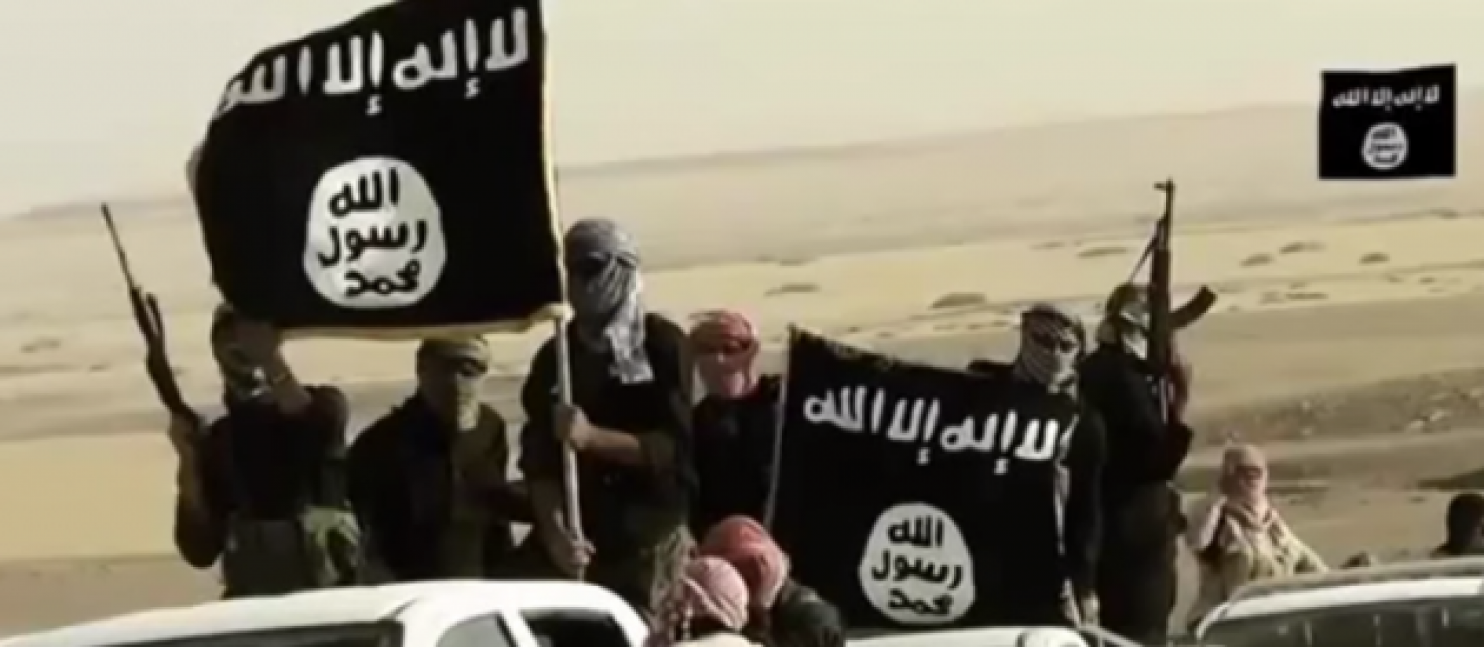by Emile Nakhleh
As the Islamic State continues to conquer territory in Iraq and Syria, and as the Assad regime teeters on collapse and the Iraqi government loses credibility, many in the West are wondering why the Islamic State (ISIS or IS) remains resilient despite the frequent coalition airstrikes. If the Islamic State’s brutality is so abhorrent and its rule so medieval, why does it continue to garner wide support among Sunni Arab Muslims and attract increasing numbers of would-be young jihadis from Western countries?
In an attempt to answer these questions, recent media analysis has focused primarily on the complexity of the Syrian and Iraqi political and social environments and on the pitiful performance of the Iraqi army on the battlefield, especially in the fight for Ramadi. A deeper analysis of the continuing IS blitzkrieg and its ideological appeal points to other and perhaps deeper explanations.
The Success Factor
It might be trite to say that “success breeds success,” but it does. The Islamic State has used the conquest of Ramadi in Anbar Province in western Iraq and Palmyra in Syria as effective propaganda tools to attract more recruits and radicalize potential supporters. The IS exploits its “success” to highlight the poor performance of the Iraqi and Syrian armies and the “un-Islamic” nature of the regimes it’s fighting.
The IS seems to play a clever zero-sum propaganda game. The IS claims its side of the coin reflects coordination, determination, thoughtful planning, and goal-oriented order of battle. By contrast, IS video and YouTube messaging shows the Iraqi and Syrian armies in disarray. Instead of fighting IS and holding their positions, they are retreating. Recent statements by Iraqi Prime Minister Haider al-Abadi calling for more American military support and his growing reliance on pro-Iranian Shia militias to retake Ramadi play well into the IS psychological campaign to win the hearts and minds of Sunni Arabs.
As long as Iraqi troops have no mission and no unifying nationalist goal to fight for, their will to fight remains elusive. The Iraqi prime minister took umbrage at the recent painfully truthful statement by the American defense secretary that the Iraqi army lost the battle of Ramadi because they had “no will to fight.” Despite massive coalition air strikes against IS positions and the 24/7 counter-messaging campaign by the United States and other Western countries, IS remains potent and capable of projecting success for itself and defeat for the opposing regimes.
The Brutality Factor
Western audiences are rightly appalled by the ghastly brutality of the Islamic State and are often bewildered why such brutality has so far not turned Sunni Arab public opinion against it. The simple, inconvenient truth is that such gruesome violence is not unique to the Islamic State. Across the Middle East, Arab citizens have routinely suffered from their regimes’ violent repression. Thousands of innocent civilians are languishing in prisons in Egypt, Syria, Iraq, Saudi Arabia, Jordan, the United Arab Emirates, Bahrain, Algeria, Yemen, and Libya. Human rights reports have documented many cases of illegal incarcerations, sham trials, torture, and rape.
IS-type brutality unfortunately is not an anomaly or an exception in most Arab countries. The imposition of mass death penalties in Egypt and the vicious treatment of Shia and other minorities in the Gulf states are but two examples of regime repression and terror.
Although cable news channels in the United States, for example, constantly tout the IS violence in their “Breaking News” reports, Arab citizens wonder why these news outlets barely mention regime violence against their citizens. Juxtaposed against regime repression in many Arab countries, the Islamic State’s brutality doesn’t seem so exceptional, nor has it undermined its standing among Sunni Muslims in Iraq and the wider Levant.
As some of these Sunnis watch Western governments cozy up to repressive Sunni Arab regimes—including in Egypt, Bahrain, Saudi Arabia, Algeria, and elsewhere— they find Western media reports decrying the brutality of the Islamic State less compelling. Iraqi Sunnis are especially incensed at Washington’s perceived tolerance of the Abadi government’s continued discrimination against them.
The ongoing so-called debate in Washington about “who lost Iraq” and “who created IS” and the blame game that some neo-cons are playing against the Obama administration for pulling American troops out of Iraq are an exercise in disingenuous sophistry. The invasion of Iraq and the Rumsfeld-approved decision by Paul Bremer in 2003 to disband the Iraqi army begat the first insurgency, which led to the creation of al-Qaeda in Iraq and its morphing into IS.
It’s the height of dissemblance for Paul Bremer to claim, as he did recently on Fox News, that President Obama’s decision to pull all US troops out of Iraq helped create IS. Having served as the “Grand Vizier” of Baghdad’s “Green Zone” after the US invasion in 2003, Paul Bremmer would do well to go back and relearn the recent history of that beleaguered country. In any case, neither the Islamic State nor Iraqi Sunnis are paying much attention to this “inside the Beltway” Washington babble.
The Ideology Factor
The Islamic State has used its Caliphate ideology, which resonates with many Salafi Sunnis in Saudi Arabia and elsewhere, to generate political and financial support. Simply put, this ideology calls for the resurrection of the Islamic (read Sunni) Caliphate in the heartland of Sunni Islam or the Levant. Sunni school children have studied for centuries that in its heyday the Islamic Caliphate existed in Damascus under the Umayyads for approximately a century before moving to Baghdad under the Abbasids where it lasted for four or five centuries. Shia Islam developed in southern Iraq (today’s Najaf and Karbala) in the last two decades of the seventh century.
The Salafi-Sunni-Caliphate ideology, to which many Saudi Salafi Wahhabis adhere, views the Shia as “apostates” that should be killed. It is, therefore, no coincidence that the Islamic State has sponsored or encouraged bloody attacks against Shia co-religionists in Saudi Arabia, Bahrain, Yemen, Afghanistan, and Pakistan.
The Caliphate ideology calls for the establishment of an Islamic community or ummah ruled by leaders who behave in an Islamic way. For IS, and even for al-Qaeda, today’s Sunni rulers of Egypt, Saudi Arabia, Bahrain, and Jordan, for example, are not true Muslims and are considered the “near enemy.” Therefore, they are legitimate targets.
In light of this, some Western policymakers have correctly pointed out that the ideology of IS is more of a threat to the region and its leaders and less so to Western countries. The growing numbers of radicalized Western youth, however, could become a gathering threat in their societies.
The Resource Factor
The Islamic State is wealthy, well resourced, and well armed. It has accumulated millions of dollars from banks it captured or broke into, from illicit trade, from oil fields, and from donations from the Gulf and elsewhere. IS has also captured tons of sophisticated weapons from Iraqi military camps and storage places after Iraqi forces have fled or were defeated. It has purchased other weapons on the black market through Iraqi military officers. IS has benefited heavily from the corruption, greed, and graft in Iraq and Syria.
Unlike al-Qaeda, the IS has no shortage of weapons, funds, or recruits, which should keep it going for at least one-three years. However, if the Islamic State’s opponents were able to contain it in a specific territory, its access to resources—weapons, money, and recruits—would be curtailed. An effective containment strategy would portend its demise.
How to Stop ISIS?
Identifying the root causes of IS is not rocket science. Its resiliency and persistence result from the domestic policies of repressive regimes, radical Sunni ideology, citizens’ grievances, and the availability of resources. IS has utilized all of these causes effectively and brutally. It has placed many of its facilities inside or near populated areas in Syria and Iraq because it has counted—and correctly so—on the American-led coalition’s hesitancy to bomb populated areas, which could cause large numbers of civilian deaths. Yet, I have argued previously on this blog that several steps could be taken to contain ISIS and force it to remain a local or regional phenomenon.
Containing ISIS requires an American regional strategy with the goal of moving forward with the following steps:
- Work with Turkey, Iraq, and the Kurds to form a ground fighting force to encircle IS. The US could provide intelligence, transport, and logistics.
- Work with Turkey, Saudi Arabia, and Jordan to bring down the Assad regime. The US should refrain from assisting al-Qaeda-affiliated groups to achieve this goal.
- Strongly encourage the Abadi government in Baghdad to include Iraqi Sunnis in the governance of Iraq. Economic opportunities and high-level government employment should also be extended to the Sunni community.
- Persuade Arab dictators to open up their political systems and explain to them clearly and forcefully that autocracy is a relic of the past and that rulers should establish working partnerships with their citizens.
- Work closely with the new Saudi leaders to curb the spreading of radical ideology in the name of Islam. If Saudi Arabia balks, the United States should make it clear that American interests and American values are not mutually exclusive and that the current mess in the Middle East is not sustainable. The regional states have the primary responsibility to chart a new trajectory for the region.
The United States could take the lead in helping bring the region back from the brink without necessarily putting boots on the ground. If it takes these steps, the US can help contain and ultimately defeat IS. If not, the Islamic State’s resilience, resources, and reach could enable it to break out of the Levant and into Egypt, the Arabian Peninsula, and North Africa.






Is there a way to contact Lobelog? (copyrights permit request)
Ron Hawk sums it up well. However, exploding bombs are not conducive to selling Big Macs, Cokes, maintaining stable gas prices or anything else. Anything short of eradicating radical Islam will fail. The biggest mistake of all – are the talks with Iran.